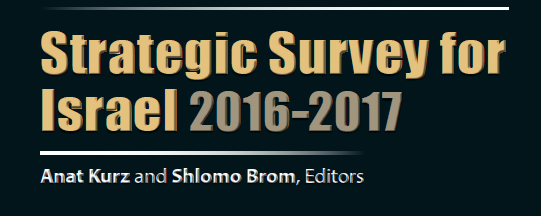Publications
Strategic Survey for Israel 2016-2017, eds. Anat Kurz and Shlomo Brom, Tel Aviv: Institute for National Security Studies, 2016

The article deals with Chinese policy in the Middle East. The authors conclude that in the coming years, China’s objectives for the Middle East, including toward Israel, will feature growing involvement, mainly in the economic sphere. The development of knowledge in Israel about this major power should therefore be enhanced and extended.
The opinions expressed in INSS publications are the authors’ alone.
Publication Series Chapters


